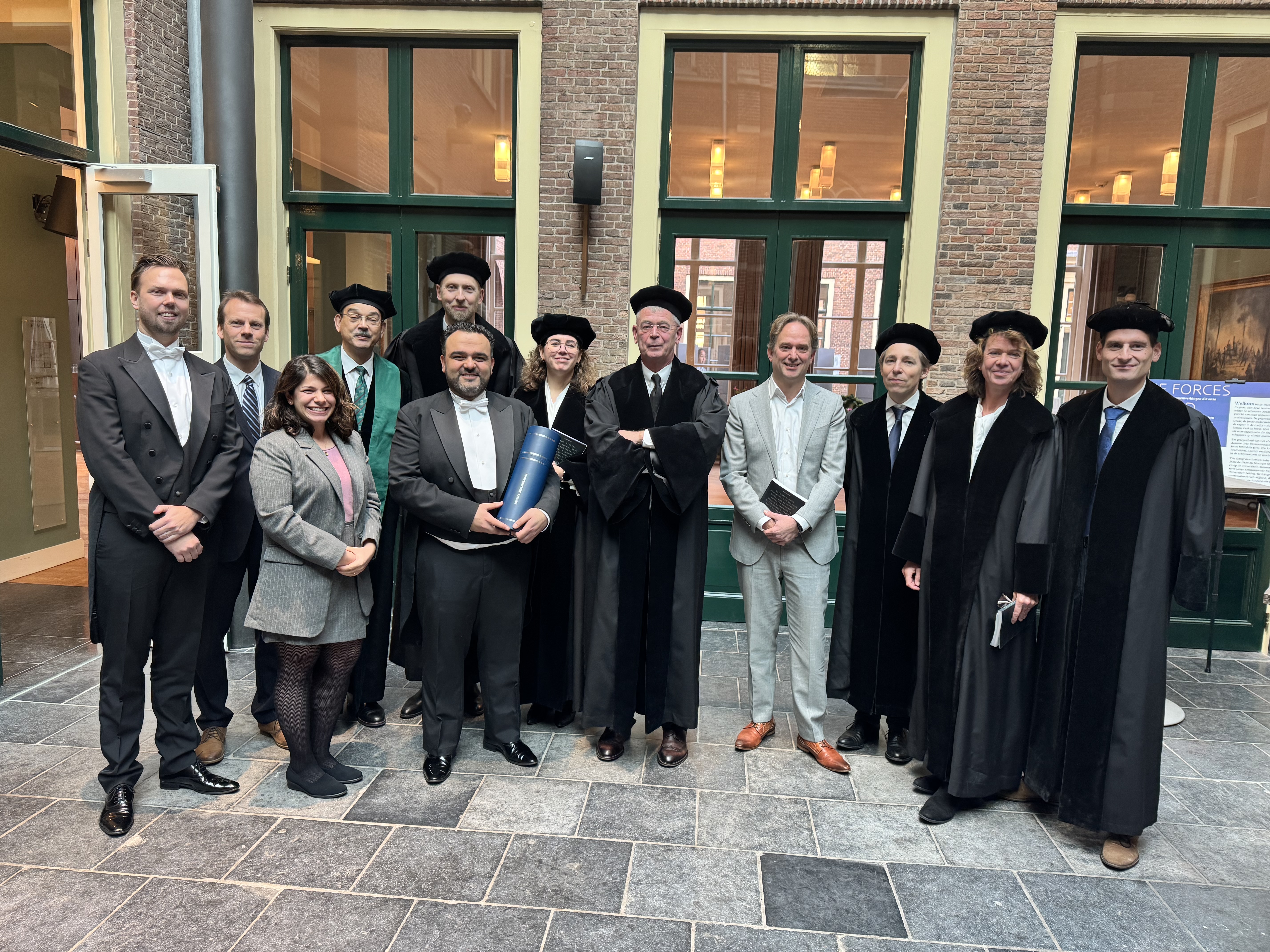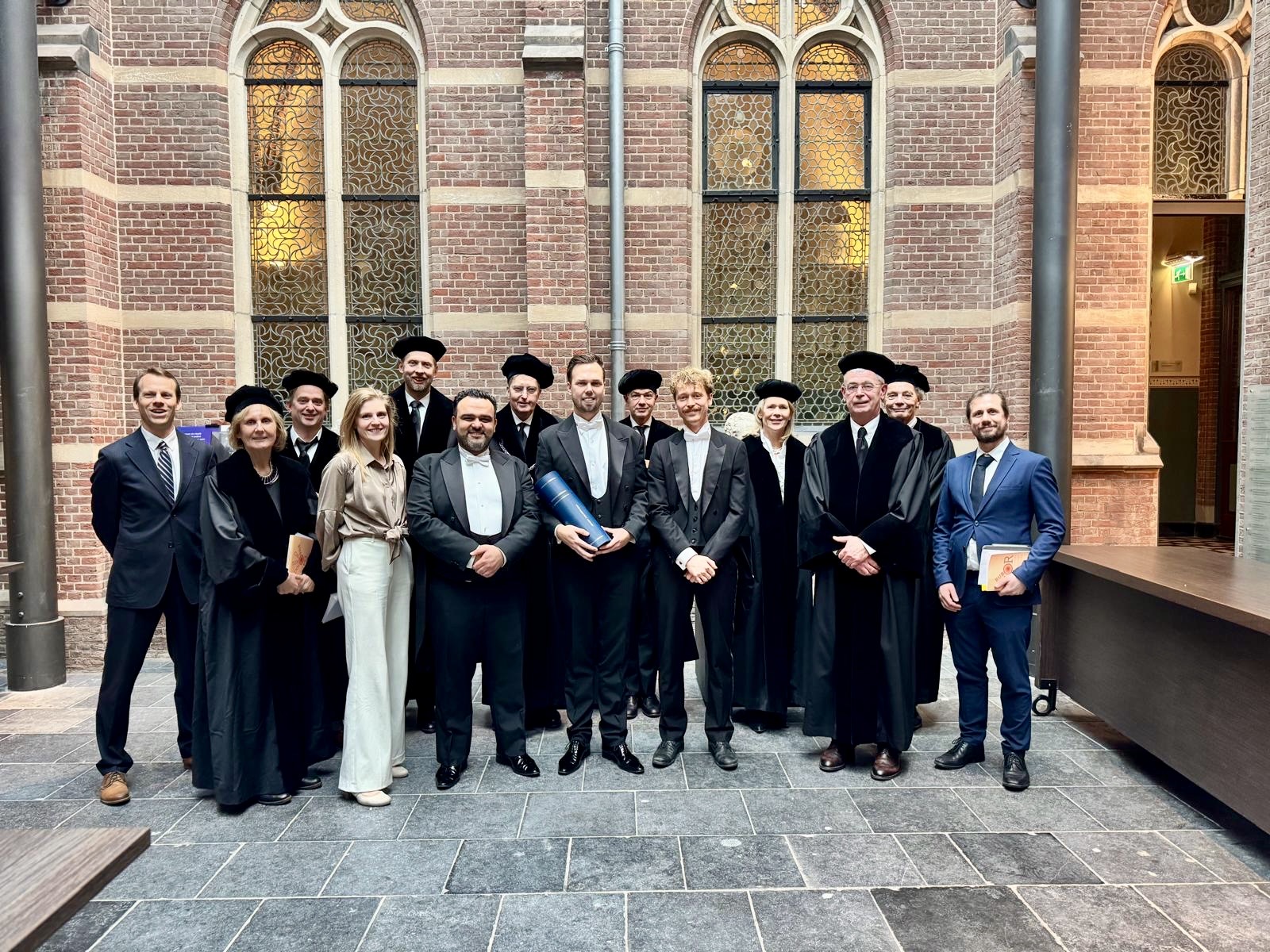A great day of science! On the 17th of December Mahdi Saghari and Wouter ten Voorde successfully defend their PhD theses.
Madhi’s PhD thesis titled “Keyhole limpet hemocyanin challenge model for studying adaptive immune system responses in early-phase clinical drug development” investigates immunological challenge models. Autoimmune diseases affect 5–8% of the global population, with over 80 identified disorders causing significant distress and socioeconomic challenges. Current treatments are often nonspecific, carry side effects, and fail to work for many patients, highlighting the urgent need for new, targeted therapies. Early-phase trials often lack biomarkers to assess immunomodulatory drugs, but innovative strategies, such as immune challenge models, offer promise. This thesis focuses on developing and applying a Keyhole Limpet Hemocyanin (KLH) challenge model in healthy volunteers to study adaptive immune responses, optimize the model, and evaluate new immunomodulatory drugs, aiming to improve drug development and patient outcomes. Find Mahdi’s thesis here
Wouter’s PhD thesis titled “Rubor, Calor, Tumor, Dolor: objective assessments of inflammation” investigates objective measurements for inflammation. Early-stage drug development in dermatology faces challenges due to the complexity of skin processes like inflammation, immune response, and wound healing. Success rates for drug development are low, particularly for immunosuppressive and anti-inflammatory agents.
This thesis explores trauma-based and pharmacological challenges to evaluate pharmacodynamic endpoints in dermatology. It covers wound models, including punch biopsies and suction blisters, challenge models such as substance P, LPS, and imiquimod, and investigates microneedle delivery of drugs. The findings highlight strategies for incorporating pharmacodynamic assessments into phase I studies, aiming to optimize drug development in dermatology. Find Wouter’s thesis here



